All Stories
-
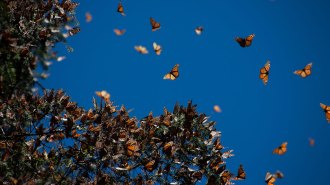 Environment
EnvironmentAn idea to save Mexico’s oyamel forests could help monarch butterflies too
Climate change is putting monarch butterflies’ overwintering forests in Mexico at risk. Could planting new forests solve that problem?
-
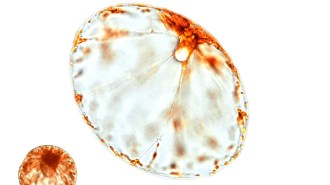 Oceans
OceansHow tiny phytoplankton trek long distances upward in the ocean
Taking in seawater while filtering out dense salts lets unicellular phytoplankton migrate tens of meters vertically toward sunnier seas.
-
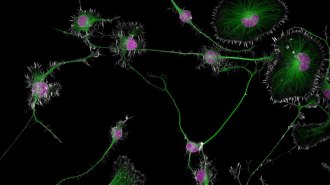 Life
LifeHere are some stellar picks from Nikon’s top microscopy images of 2024
The annual Small World photomicrography competition, now in its 50th year, puts life’s smallest details under the microscope.
-
 Planetary Science
Planetary ScienceThe cataclysmic origins of most of Earth’s meteorites have been found
Just a few smashups in the asteroid belt may account for 70 percent of Earth’s meteorites, limiting what’s known about our solar system’s history.
-
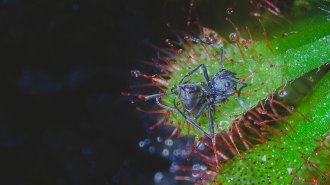 Plants
PlantsCarnivorous plants eat faster with a fungal friend
Insects stuck in sundew plants’ sticky secretions suffocate and die before being subjected to a medley of digestive enzymes.
-
 Planetary Science
Planetary ScienceNASA’s Europa mission is a homecoming for one planetary astronomer
Over her long career, Bonnie Buratti has seen the search for life in the solar system go from a joke to a flagship mission.
-
 Animals
AnimalsAt-home experiments shed light on cats’ liquid behavior
Cats can flow like liquids through tall crevices, but they solidify a bit as they approach short crannies, new research shows.
-
 Neuroscience
NeuroscienceYour brain can perceive subtle odor changes in a single sniff
The speed at which our brain can tell smells apart is on par with color perception, a new sniff device shows.
-
 Psychology
PsychologyNavigation research often excludes the environment. That’s starting to change
Participants “navigating” on a lab computer have shaped navigation knowledge. Studies that add in the environment challenge those findings.
By Sujata Gupta -
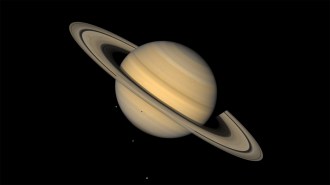 Planetary Science
Planetary ScienceSaturn’s first Trojan asteroid has finally been discovered
Saturn joins the sun’s other giant planets that have Trojans, space rocks that orbit along the same path.
By Ken Croswell -
 Animals
AnimalsDNA from old hair helps confirm the macabre diet of two 19th century lions
Genetic analysis of cavity crud from two famed man-eating lions suggests the method could re-create diets of predators that lived thousands of years ago.
By Jake Buehler -
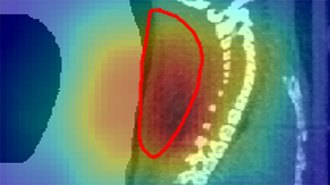 Physics
PhysicsRadioactive beams give a real-time view of cancer treatment in mice
This first successful treatment of tumors with radioactive ion beams could one day lead to treating human patients’ tumors with millimeter precision.